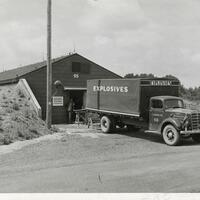Captain John McConihe was born on September 4, 1834 in Troy, New York to Hon. Isaac McConihe, a prominent lawyer, and Sarah Strong McConihe. Beginning at the age of 16, McConihe studied at Union College in Schenectady and graduated in 1853. For a few months, he studied law with his father before attending Albany Law School. He graduated in 1855. McConihe then established a successful law practice in Troy. Probably due to the influence of his friend, John Newton, McConihe developed an interest in the West and moved to the Nebraska Territory in 1857. McConihe settled in Omaha. In addition to having several business ventures such as land speculation, he also was involved in local politics in Nebraska. He held several positions including private secretary to territorial governors, William A. Richardson and Samuel Black, Notary Public and Master in Chancery.
McConihe joined the First Nebraskan regiment at the outbreak of the Civil War and was appointed Captain of Company G. He was wounded in the shoulder during the Battle of Shiloh in Tennessee on April 6-7, 1862. He returned to Troy to recover but also traveled to Cincinnati and Washington D.C. during his recovery. While in Troy, he transferred to the 169th New York Company. He was appointed Lieutenant Colonel. McConihe was killed in action on June 1, 1864 at Cold Harbor. His funeral was held in Troy and he was buried in Oakwood Cemetery in Troy.



